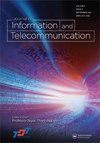Trends in combating fake news on social media – a survey
IF 1.7
Q2 COMPUTER SCIENCE, INFORMATION SYSTEMS
Journal of Information and Telecommunication
Pub Date : 2020-11-27
DOI:10.1080/24751839.2020.1847379
引用次数: 50
Abstract
ABSTRACT Social media following its introduction has witnessed a lot of scholarly attention in recent years due to its growing popularity. These various social media sites have become the mecca of information because of their less costly and easy accessibility. Although these sites were developed to enhance our lives, they are seen as both angelic and vicious. Growing misinformation and fake content by malicious users have not only plagued our online social media ecosystem into chaos, but it also meted untold suffering to humankind. Recently, social media has witnessed a reverberation amid the proliferation of fake news which has made people reluctant to engage in genuine news sharing for fear that such information is false. Consequently, there is a dire need for these fake content to be detected and removed from social media. This study explores the various methods of combating fake news on social media such as Natural Language Processing, Hybrid model. We surmised that detecting fake news is a challenging and complex issue, however, it remains a workable task. Revelation in this study holds that the application of hybrid-machine learning techniques and the collective effort of humans could stand a higher chance of fighting misinformation on social media.打击社交媒体假新闻的趋势——一项调查
近年来,由于社交媒体的日益普及,它的出现引起了学术界的广泛关注。这些各种各样的社交媒体网站已经成为信息的圣地,因为它们成本较低,易于访问。虽然这些网站是为了改善我们的生活而开发的,但它们被视为既天使又邪恶。恶意用户越来越多的错误信息和虚假内容,不仅使我们的网络社交媒体生态系统陷入混乱,而且给人类带来了难以言表的痛苦。最近,社交媒体见证了假新闻泛滥的反响,这使得人们不愿参与真正的新闻分享,因为担心这些信息是虚假的。因此,迫切需要从社交媒体上发现和删除这些虚假内容。本研究探讨了在社交媒体上打击假新闻的各种方法,如自然语言处理,混合模型。我们推测,检测假新闻是一个具有挑战性和复杂的问题,然而,它仍然是一个可行的任务。这项研究的启示认为,混合机器学习技术的应用和人类的集体努力可以更有可能打击社交媒体上的错误信息。
本文章由计算机程序翻译,如有差异,请以英文原文为准。
求助全文
约1分钟内获得全文
求助全文
来源期刊
CiteScore
7.50
自引率
0.00%
发文量
18
审稿时长
27 weeks

 求助内容:
求助内容: 应助结果提醒方式:
应助结果提醒方式:


